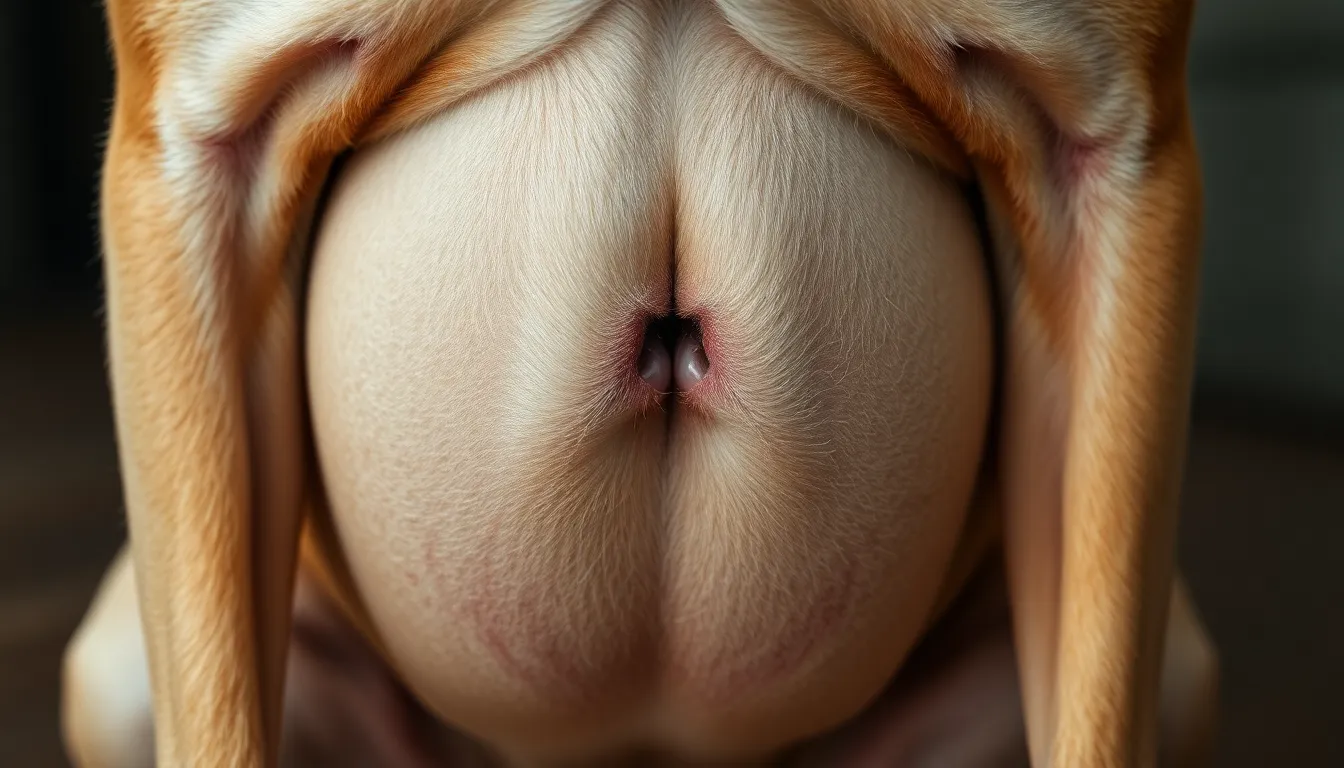Table of Contents
ToggleWhen a dog reaches the four-week mark of her pregnancy, her body starts to show some pretty fascinating changes—especially in the nipple department. Those little nubs are gearing up for the main event, and it’s not just a fashion statement. It’s nature’s way of preparing for the adorable puppies that are on their way.
Understanding Dog Pregnancy
During pregnancy, a dog’s body undergoes significant changes to support her developing puppies. Starting in week four, noticeable transformations occur, particularly in the nipples. Nipples may appear larger and darker, reflecting hormonal shifts that prepare the dog for nursing.
Body weight typically increases as a result of developing puppies. A veterinarian might assess weight gain during routine check-ups to ensure the dog remains healthy throughout her pregnancy. Growth of mammary glands begins, facilitating milk production. This process can vary among dogs, depending on factors like breed and overall health.
Pregnant dogs may exhibit behavioral changes as well. She might seek more attention or display nesting tendencies. These actions signal her instinct to prepare for motherhood. Increased appetite often accompanies this phase, as it supports both her energy needs and puppy development.
Monitoring the dog’s physical condition is crucial during this time. Signs of distress or discomfort warrant immediate veterinary attention. Proper nutrition plays an essential role in maintaining her health and that of the puppies. Nutrient-rich diets promote optimal growth and development.
Caregivers should also anticipate changes in the dog’s temperament. Mood swings may become apparent as she navigates hormonal fluctuations. Providing a calm environment fosters a sense of security, helping reduce stress levels.
Awareness of these changes enriches the understanding of dog pregnancy. Owners can feel more equipped to support a pregnant dog through her transformative journey, ultimately leading to a successful whelping experience.
Changes in a Pregnant Dog’s Body

In the fourth week of pregnancy, significant transformations occur in a dog’s body. These alterations prepare her for the arrival of puppies.
Physical Changes at 4 Weeks
Nipple development becomes noticeable. Mammary glands start to enlarge, indicating readiness for milk production. Increased body weight occurs as the puppies grow. Skin around the nipples may darken, enhancing their visibility. Additionally, her abdomen may appear slightly rounded, a sign of the developing litter. Caregivers often observe these changes, which reflect the dog’s natural adaptations to support her future puppies.
Behavioral Changes to Observe
Heightened affection towards caregivers becomes evident. She may seek extra attention and display signs of nesting behavior. Searching for a comfortable space for whelping often leads to rearranging bedding or toys. Increased appetite supports her energy requirements and the puppies’ growth. Mood swings may appear, causing fluctuations in her behavior. Recognizing these signs helps caregivers provide the necessary support during this important time.
The Importance of Nipple Changes
Nipple changes during the fourth week of a dog’s pregnancy signal significant biological processes. Recognizing these alterations helps in monitoring the dog’s health and preparing for the upcoming puppies.
What to Expect at 4 Weeks
At four weeks, a dog’s nipples become more prominent, with noticeable enlargement observed. The mammary glands start developing in preparation for milk production. Skin pigmentation around the nipples often darkens, presenting a visible change in appearance. Additionally, the abdomen may show a slight roundness as the litter grows. These physical signs indicate that the dog is progressing healthily through her pregnancy.
Signs of Healthy Development
Healthy development manifests through specific indicators. Expect an increase in appetite, a vital sign reflecting nutritional needs for the growing puppies. Weight gain becomes evident as the pregnancy advances, marking another positive sign. Increased affection toward caregivers may indicate hormonal changes, contributing to her nurturing instincts. Frequent behaviors associated with nesting can emerge, showcasing a readiness for whelping. Monitoring these signs assures caregivers of the dog’s well-being during this crucial period.
Caring for Your Pregnant Dog
Caring for a pregnant dog involves attention to her dietary needs and regular veterinary visits. Owners should ensure she receives proper nutrition throughout her pregnancy.
Nutrition and Diet Considerations
Nutrition plays a vital role in supporting a pregnant dog. Providing high-quality, balanced dog food ensures she receives essential nutrients. Increased protein intake promotes healthy growth for the developing puppies. Owners often switch to a specialized puppy food, which contains higher calorie content and necessary vitamins. Hydration remains critical, so fresh water must always be available. Including small, frequent meals helps maintain energy levels. Avoiding table scraps prevents digestive issues and keeps her diet consistent.
Veterinary Check-ups and Monitoring
Regular veterinary check-ups become essential during pregnancy. Veterinarians assess the dog’s health, ensuring she’s free from infections or underlying conditions. Monitoring weight gain is important, as gradual increases indicate healthy puppy development. Routine examinations also help track the growth of the puppies via ultrasound when appropriate. Owners should report any unusual behavior, appetite changes, or signs of distress to their vet promptly. Vaccination status needs verification to protect both the dog and her puppies from contagious diseases. Staying informed through these check-ups enhances the chances of a successful delivery.
Recognizing the changes in a dog’s nipples during the fourth week of pregnancy is crucial for any owner. These physical transformations indicate that the body is preparing for the arrival of puppies. Increased affection and nesting behaviors highlight her instinctual nurturing nature.
Maintaining proper nutrition and regular veterinary check-ups is essential for both the mother and her developing puppies. Observing her appetite and weight gain provides reassurance of her health during this critical time. By staying attentive to these signs and ensuring she receives the care she needs, owners can support their pregnant dogs through a smooth and successful whelping experience.





